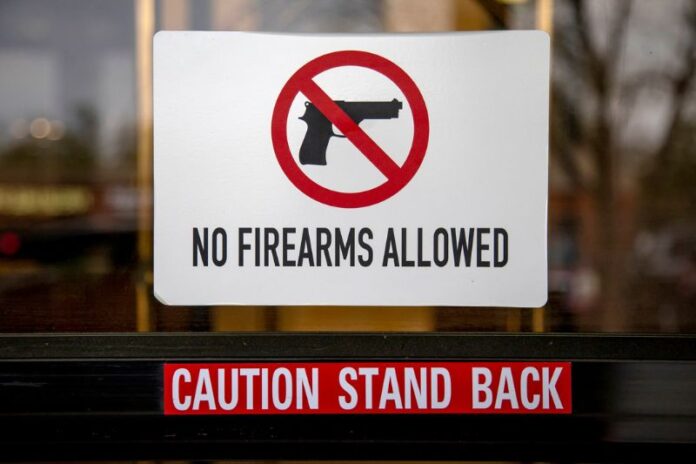On the heels of a New York conviction that stripped former President Donald Trump of his Second Amendment rights, a federal jury in Delaware is considering whether Hunter Biden violated three gun laws when he bought a revolver in 2018. If Biden is convicted of those felonies, he also will lose the constitutional right to armed self-defense.
These two cases — one involving the president’s son, the other involving the president’s opponent in this year’s election — highlight the arbitrariness of a federal law that deprives Americans of their gun rights for reasons that have nothing to do with public safety. That constitutionally dubious law treats millions of Americans with no history of violence as public menaces who can never be trusted with firearms.
This policy is relatively recent. The original federal restriction, enacted in 1938, applied only to violent crimes like murder, manslaughter, rape, kidnapping and robbery. In 1961, Congress expanded the ban to cover nonviolent crimes punishable by more than a year of incarceration.
That category of “prohibited persons,” professor Adam Winkler of the University of California, Los Angeles, notes, is “wildly overinclusive,” encompassing many crimes that are “not violent in the least.” The Trump and Biden cases illustrate that point.
Leaving aside the shaky legal reasoning that allowed New York prosecutors to convert a hush payment into 34 felonies, falsification of business records, even to aid or conceal “another crime,” is not a violent crime that marks someone as apt to injure or kill people with a gun. Nor is buying a firearm as an “unlawful user” of a “controlled substance,” which Biden allegedly did in 2018, when he admits he was regularly smoking crack cocaine.
However you assess Biden’s suitability as a gun owner back then, he has been sober for years. Yet if he is convicted of the gun charges against him, which involve illegal possession and misrepresenting himself as a legal buyer, he will not only face up to 25 years in prison; he will also permanently lose his Second Amendment rights.
Prior to his trial, Biden argued the gun charges should be dismissed because the ban on firearm possession by drug users is unconstitutional. Last year, his lawyers noted, the U.S. Court of Appeals for the 5th Circuit overturned a cannabis consumer’s conviction under that statute, rejecting the government’s argument that his prosecution was “consistent with this Nation’s historical tradition of firearm regulation” — the constitutional test the U.S. Supreme Court established in 2022.
U.S. District Judge Maryellen Noreika, who is presiding over Biden’s case, denied his motion, saying he had failed to show the ban he allegedly flouted is unconstitutional on its face. But she said he could still challenge the ban as applied to him if he is convicted.
In addition to the 5th Circuit, at least three federal courts have deemed prosecuting marijuana users for gun possession unconstitutional. Courts also have questioned the provision that bars people with a wide range of criminal records from owning guns.
Last year, the U.S. Court of Appeals for the 3rd Circuit restored the gun rights of a man who had been convicted of food stamp fraud. In light of that decision, a federal judge in Pennsylvania did the same for a man who had been convicted of driving under the influence.
Although those offenses were misdemeanors, they triggered the federal ban because they were notionally punishable by more than a year in prison. The 3rd Circuit emphasized the danger of giving legislators broad discretion to “manipulate the Second Amendment” by deciding how to label and punish crimes.
History “demonstrates that legislatures have the power to prohibit dangerous people from possessing guns,” Supreme Court Justice Amy Coney Barrett wrote in a 2019 dissent from an appeals court decision involving a mail fraud conviction. “But that power extends only to people who are dangerous.”
As the Trump and Biden cases show, that test requires more than a legislative decision to classify an offense as a felony.






























